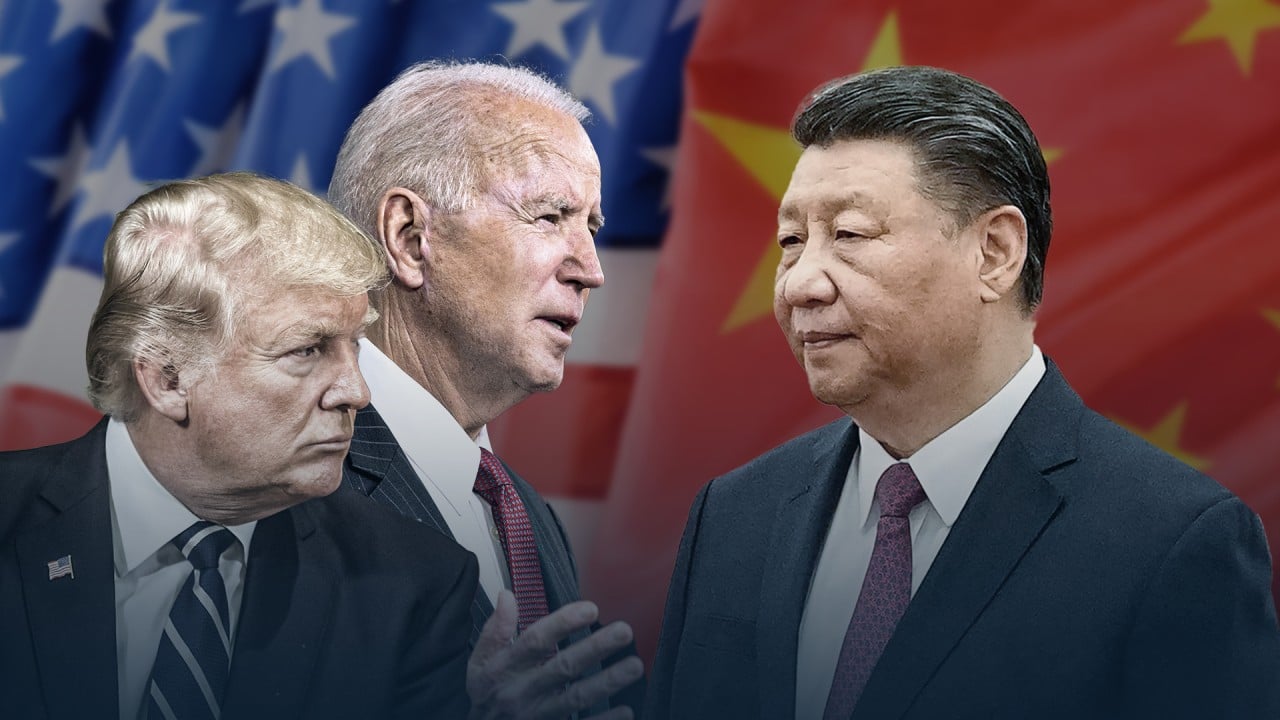
US debt ceiling crisis: risks still lurk for China despite prospect of deal, analysts say
- Beijing is one of the world’s biggest holders of US debt and could be affected by future turmoil in the market and the dollar
- The two countries are still linked and an agreement is in both their interests, observer says
The agreement still needs the approval of lawmakers of both parties before the Treasury is projected to run out of cash to pay its bills on June 5.
McCarthy said he planned to meet Biden again and release the legislative text on Sunday before voting on Wednesday.
The deal is expected to avert an unprecedented credit default that many worry could be catastrophic to a global economy that has already been battered by banking turmoil, prolonged high inflation and fallout from the war in Ukraine.
“In the short run, the alarm has been lifted, but the disagreement between the two parties and its impacts on the US and global economy, especially on US dollar assets, are actually not completely eliminated,” Renmin University finance professor Zhao Xijun said.
The deal is seen as a victory for Biden but the crisis has highlighted the deep partisan antipathy in the United States and called the US’ government credibility into question.
“As long as the interests of the two parties are not aligned, disputes over the debt ceiling will re-emerge – and more frequently,” Zhao said.
“The debt limit has increasingly become a contentious issue between the two parties, which may be less willing to compromise in the future.”
The weeks-long stand-off in Washington raised deep concerns in China, with the US one of the top destinations markets of China’s overseas securities investment.
According to data from the US Department of the Treasury, China owned US$859 billion in US debt as of January, it is the largest foreign holder only after Japan.
“China is very concerned about the risks associated with the debt issue because China holds a large number of US bonds and investments, and turmoil in the US credit market would mean pressure for not only the US financial market but also for the US dollar,” Zhao said. “In this sense, the entire international financial market would be affected.”
Top IMF official slams US government over debt stand-off ‘anxiety’
Shi Yinhong, an international relations expert also with Renmin University, warned that there were still some uncertainties about how Biden and McCarthy were going to sell the deal to the Republican-led House and Democratic-controlled Senate.
“Time is running out and it is unlikely both houses of Congress will reject the deal,” Shi said. “But if the two parties fail to reach a deal before the default deadline, there will be a really big blow to China and Japan.”
Chen Fengying, a senior researcher at the China Institutes of Contemporary International Relations in Beijing, said the US’ debt ceiling issue was a political, rather than economic, issue.
Introduced in 1917, the debt ceiling is to cap on the money the federal government can borrow – via bills and bonds – to fulfil its financial obligations. Since 1960, the US Congress has acted 78 times to permanently raise, temporarily extend, or revise the definition of the debt limit, and the US has never intentionally defaulted on its obligations because of the debt limit.
“In this sense, it is all about the bipartisanship and the bargaining between the two parties,” Chen said.
Tan Yaling, head of the Beijing-based China Forex Investment Research Institute, said the US debt crisis would have a limited impact on China. The bigger concern was the large gap in interest yields between the two countries.
“The higher yield of US treasuries than Chinese government bonds will trigger hedges and speculative action [that will bring risks to Chinese financial markets],” she said.
Chinese agency first to downgrade US credit rating as debt-ceiling concerns widen
China’s financial regulators have repeatedly warned about external economic headwinds on the domestic economic recovery.
In its first quarter monetary report on May 15, China’s central bank said the slowing global growth, elevated inflation, ongoing geopolitical conflicts and the tightening monetary policies of major countries had exacerbated global financial market turbulence, making the markets more “unstable, uncertain and unpredictable”.
Pang Zhongying, chair professor in international political economy at Sichuan University, said that despite the bitter rivalry between the two countries, a debt ceiling deal in the US would be good news to China, too.
“Any financial turmoil in the US would inevitably have an impact on China because the US is still the world’s largest economy,” Pang said. “China and the United States are not completely decoupled, so a debt limit deal is in the interests of China and the world.”
Additional reporting by Robert Delaney


